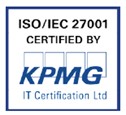Expert Branding – Tips on How to Shine and Prosper Professionally
24 October 2018
Heidi Heinänen works as a Client Relations Manager at Hannes Snellman and has a special focus in communication. Heidi has a burning passion for digital communication, employee branding, and social channels in corporate communications.
A modern expert needs a brand. Developing a personal brand – or an expert brand, as I like to call it – simply entails combining your expertise, experience, professional knowledge, interests, and credibility, added with an ability to communicate these topics to your networks. An expert brand is neither artificial, nor is it empty promises; it is a useful tool for professional communication from the very beginning of your career.
Like any other brand, a credible expert brand has to be genuine. Credibility stems from the personality. People do not want to cooperate with “an enthusiastic legal professional with 15 years of legal experience”, but with a person who obviously knows their area of expertise, has opinions and an ability to communicate them, and is pleasant to work with.
You can already start building your expert brand at the beginning of your career, when you do not yet have a massive amount of experience or expertise to share. Developing your expert brand always involves more or less conscious and deliberate actions. It can either be conscious choices, career goals, or dreams, or simply a minor background detail which will help you make the right choices in any upcoming situations. It is also good to note that in the different phases of your career, your brand is, and will be, different. Different aspects of your career will be emphasised in different times, and different sides of you as a professional can be brought up depending on the phase of your career. You can start off by thinking about these questions: What could my expert brand be? Where could I learn more about the topics I am interested in? What kind of tasks would I like to have on my desk in the future?
To some extent, it is always a good idea to visualise your career path a few years ahead, but not in detail or with too much of a sense of direction. Leave some space for a chance and adventure, so that you have the courage to grab interesting possibilities that may pop up. It is not possible to have your career or brand ready-made in advance, but it is smart to have goals and to be active trying to reach them.
This Is How You Do It
There is no “one-size-fits-all” approach in creating an expert brand, neither do all experts fit into the same mould. This is both good news and bad news. Good news in the sense that different personalities have different options how to build and develop their own personal brand. Some people feel more comfortable developing their brand and influence through real life networks, while others prefer doing it through online networking. Every personality will most certainly find a suitable platform or channel to tell about their experience, expertise, and knowledge. The best way to build and develop one’s own expert brand is by doing what feels most natural to you and what seems to be working for you. And here comes the bad news: the only way to find out the best way to build and develop your own expert brand is by doing and trying. Unfortunately, there is no manual for this.
The ABCs of Expert Branding for Students And Young Professionals
How would you like others to perceive you? How would you like others to define you as an expert? In which (professional) situations would you like to be profiled as an expert? During your studies, you can be active for example in student associations, share your professional interests, or simply show a “can-do” attitude in your trainee position – or in your first job.
Identify the relevant networks. The right forum is the one where you can reach out to the people you want to tell about your expertise. Good forums include associations, networks (both in real life and online), or social media, seminars, lectures, events, or even hobbies. In addition, your fellow students are an important network too – they are likely to work somewhere someday, so hold on to them!
Have a LinkedIn profile. LinkedIn is professionally the most important social platform for experts. During your studies, you can use it to inform your network about your studies, knowledge, skills, and work experience, even if it is not directly related to your future profession. Later, you can start to shift the focus towards your area of expertise and tell your network about your experience. LinkedIn works well as an extended CV – it is always a good idea to attach a link to your LinkedIn profile in your work applications.
Be active. Follow and participate in discussions in real life and online. Share relevant and useful content; provide updates on your career and development and post about the things that engage you professionally.
Be curious. Try to recognise professional development possibilities around you. Familiarise yourself with the career stories by recognised experts in your field. You can well compensate the lack of experience at the beginning of your career by showing interest, motivation, and the right attitude. P.S. In the heading, I promised to share one concrete tool with you. In SlideShare, you can find a presentation I have used in-house when training our Hannes Snellman experts to shine and prosper in their expert roles through LinkedIn. Since you have got this far reading this, you must be at least a little bit interested in developing your expert brand. So, do go ahead and take a look at the tips our experts are using!
Want to know more about working at Hannes Snellman? Please pay a visit to our Careers section.





